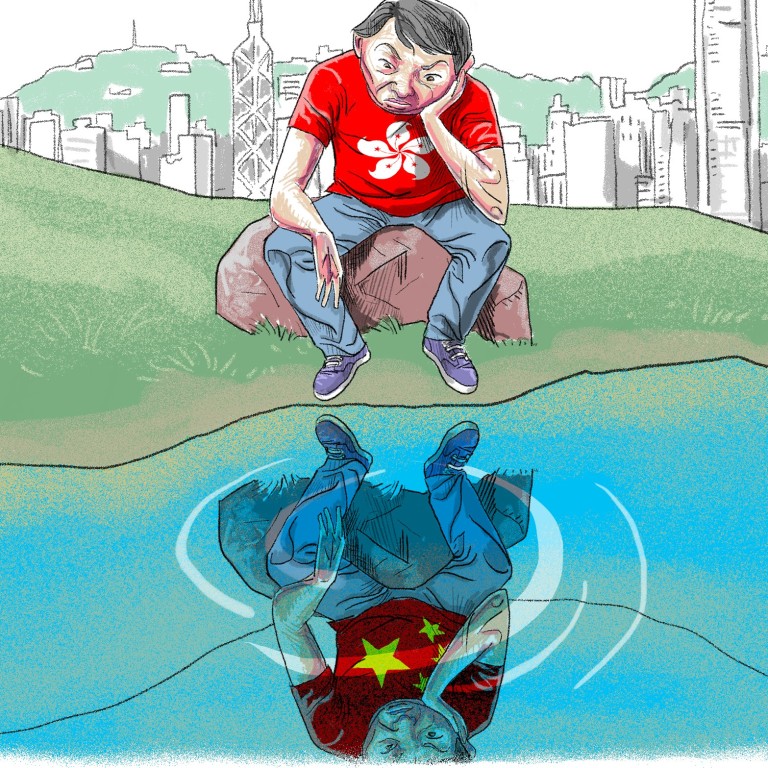
Can a grand dialogue help people reflect and heal a divided Hong Kong? Maybe. Dare we hold one? Probably not
- Reconciliation efforts elsewhere show the power of honest dialogue where people can speak up and be heard, leading to a deeper understanding and ultimately resolution
- But the process requires courage, and a willingness to transcend long-held positions
While Hong Kong was returned to Chinese sovereignty in 1997, the political “core values” of its people are “Western” and “liberal”. After all, Hong Kong was a British colony for a very long time, and its legal and administrative systems are rooted in the liberal tradition even though the vast majority of Hong Kong people are ethnically Chinese.
Hong Kong people looked to the West for ideas, education and trade. Western market liberalism was on the rise at one time, and its attraction was capitalism and personal freedom under a well-developed system of the rule of law. That was seen to be the ideal way of organising society and for personal advancement.
With China catching up in socio-economic terms under a communist ideological and political system, which the liberal West sees as illiberal and lacking the rule of law, Hong Kong people are fearful that their way of life will have to give way under Chinese sovereignty, sooner or later.
The “one country, two systems” principle and the promised “high degree of autonomy” still mean the central people’s government has overall jurisdiction over Hong Kong. Thus, when there are conflicts between the “two systems”, Hong Kong people feel they will lose out in the end.
Couple that with a resurgent China on the world stage in economic, diplomatic, technological and military terms, Hong Kong people’s confidence has taken a beating. Hong Kong could easily become less and less important.
The mixture of fear of the mainland and worry over local conditions has created a pressure-cooker environment. The extradition bill has blown the lid off.
Protester who stormed Hong Kong’s legislature reveals his side of story
Mainland authorities might see a dialogue process as yet another liberal idea and a dangerous device
What might Hong Kong learn from those examples? Reconciliation is a process that needs to be carefully and sensitively constructed, and the process needs to be negotiated and agreed upon by contending sides to enable the community to have deep dialogue and reflect on their predicament and concerns. Stage-setting for such a process will take enormous skill, and months.
There has to be rules. The process is about being heard, and not about decision-making. They are not policy debates. Skilled mediators will be needed to guide the process. The value of dialogue is rooted in a belief that it is a form of honest release that enables deeper reflection and understanding, thus creating an empathetic environment for healing and reconciliation. It is also not a process to excuse crimes that have been committed by vandals.
Human beings have the capacity to embrace partisan divides and move on. However, establishing the right process is not easy.
There are many reasons not to pursue it. The government may worry that organised dialogue would be dominated by the opposition. With district council elections in November and legislative elections next year, there might be plenty of grandstanding but no real appetite for dialogue and cooperation.
The opposition may not want to engage, either. They may think they have the upper hand. They could win a lot of votes by lambasting government as it helps voters to let off steam.
Most troubling of all for the government is that Hong Kong people might discuss the mainland as part of an organised process. Would they just advocate throwing out “one country, two systems”? Worse, radicalised activists might call for independence, thereby deepening conflict. Indeed, the mainland authorities might see a dialogue process as yet another liberal idea and a dangerous device.
Hong Kong could remain polarised and paralysed, but the wounds would continue to fester.
Perhaps a less risky start could be made by a neutral body, which could invite expert mediators from around the world who have been involved in conflict dialogue to share their experience on how to deepen listening, move beyond asserting positions and transcend fears and division. Through learning, it may just allow us to reconnect with each other and learn new skills at a time of deep division. It’s one way to prepare the community to reflect.
Christine Loh, a former undersecretary for the environment, is an adjunct professor at Hong Kong University of Science and Technology











